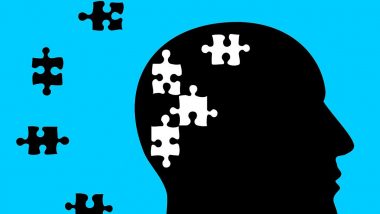New Delhi, October 6: An overwhelming 90 per cent of Indians blame fast-paced lifestyle for growing mental health issues in the country, a new survey ahead of the World Mental Health Day on October 10. The pan-India survey, conducted by location-based social network Public App, also recorded a growing willingness of people to engage in conversation on mental health, where 55 per cent of respondents admitted that they feel comfortable discussing mental health issues openly with their friends and family. Mental Illness Awareness Week (MIAW) 2023 Dates & Significance: From Reducing Stigma to Encouraging Empathy, Everything You Need To Know About the Observance.
"The number of people blaming fast-paced lifestyle for growing mental health issues highlights the importance of work-life balance and stress management. Whereas, we also found 55 per cent of the respondents are open to conversations, suggesting that individuals are increasingly open to discussing mental health challenges, further reducing the stigma associated with them," read the survey with a sample size of over 4.5 lakh people.
However, the count of people taking some form of counselling or therapy for their mental health issues continues to remain low -- 14.66 per cent. "Only 11 per cent of respondents were aware of 'Kiran', the government's 24X7 toll-free mental health rehabilitation helpline, suggesting the need for increased promotion of this valuable resource," it added.
As per the survey, the interest of people on mental health topics or their awareness on mental health policies is on the rise as close to 53 per cent of respondents admitted seeking out and reading mental health-related topics, underlining a genuine interest in understanding and addressing mental health concerns.
In terms of policy awareness, around 41 percent of people said they knew that all "health insurance policies in India are now mandated to cover mental health". In 2022, the Insurance Regulatory and Development Authority of India (IRDAI) made it mandatory for all insurance companies to cover the costs related to mental health treatment within the healthcare insurance plan. Is Learning About Psychology Useful for Your Mental Health?.
Also, recording coping mechanism of the respondents, the various activities incorporated by them to reduce mental stress include listening to music (43 per cent) followed by practising meditation (19 per cent), playing sports (17 per cent), reading (15 per cent) and Yoga (six per cent).













 Quickly
Quickly


